Do you want to know, What does straight back German Shepherd mean? What straight back German Shepherds are called? How many types of straight back German Shepherds and how they are different from each other? You’re in the right place.
The German Shepherd dog breed has several different types that vary in their physical characteristics. When it comes to the shape of their back, German Shepherds can have either a sloped (angulated) back or a straight back.
German Shepherds with straight backs have a topline that remains flat and horizontal along the spine, rather than sloping downward at the hips. They tend to have a more square, athletic build versus the lower hindquarters of the sloped-back variety.
Related: Slant Back German Shepherds | Types of Showline GSDs | How Slant (Sloped) Back German Shepherds Were Created?
At your left side you can see a sloped back show line German Shepherd whereas at your right side you can see a straight back working line German Shepherd. There is a clear difference between their body, bone, and back structure.
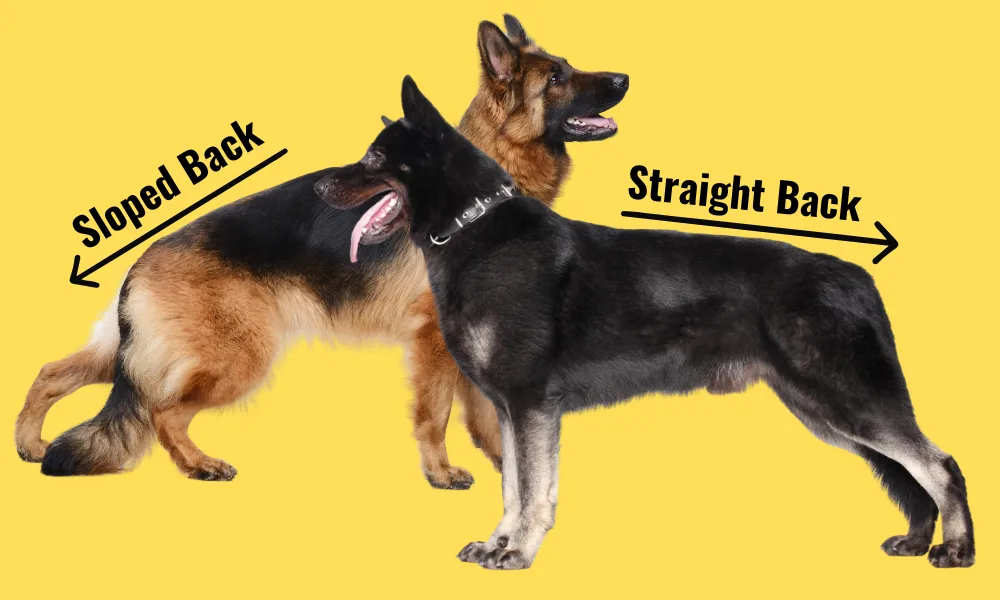
The traditional German Shepherd has a back that slopes downward from the hips toward the rear. This angled topline was favored by early breeders because it enabled greater agility and a bounding running style. However, in recent decades, some breeders have focused on producing German Shepherds with level, straight backs instead. Proponents of the straight-backed German Shepherds argue they have fewer health problems, particularly related to hind-end weakness, and have an appearance closer to the original working-line dogs.
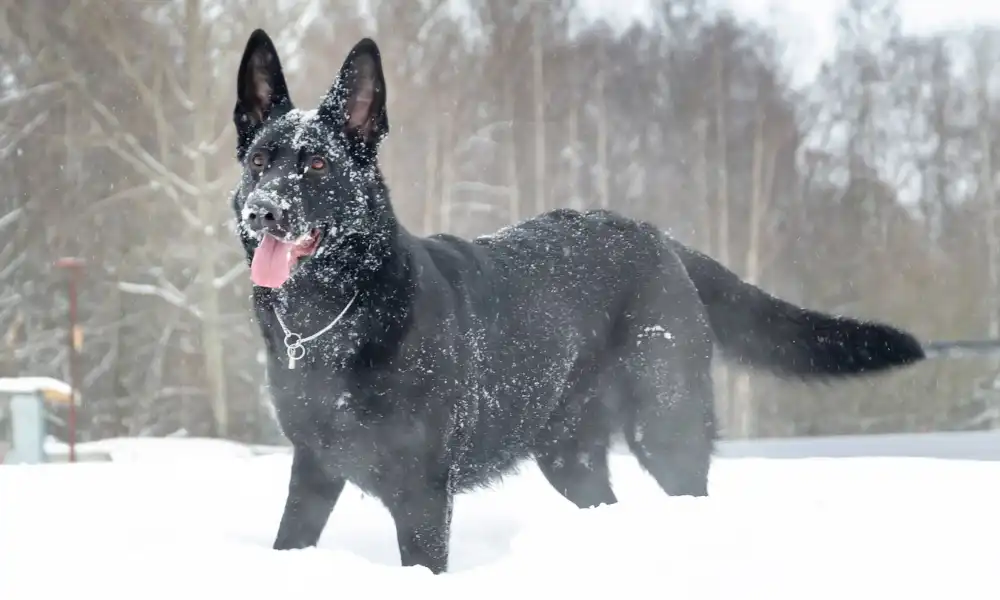
The types of German Shepherds that have a straight, level back are called Working Line German Shepherds which include East European Working Line German Shepherds, West Working Line German Shepherds, and Czech (Czechoslovakian) Working Line German Shepherds.
Related: 5 Different Types Of German Shepherd Breeds & Their Features.
The working line (straight back) German Shepherd is bred for intelligence, trainability, and ability rather than appearance. They tend to have a very straight, level back that provides strength and agility for demanding jobs like police work, search and rescue, and service positions. Their back structure allows freedom of movement and athleticism.
How Three Types of Straight Back Germans Are Different From Each Other
The three type of straight back German Shepherds i.e. East European Working Line German Shepherds, West Working Line German Shepherds, and Czech Working Line German Shepherds, all stemming from the same origins, exhibit distinctive physical characteristics that set them apart due to the specific breeding goals tied to their regions.
RELATED
- 20+ Top German Shepherd Breeders In US | Buy Puppies & Dogs
- How to Spot a Fake German Shepherd Puppy | 10 Tips
- How to Know German Shepherd Puppy is Male or Female | Gender
- A Guide for Raising German Shepherd Puppy at Home
- How to Determine the Age of German Shepherd Puppy or Dog
- How to Measure Height & Length of a German Shepherd
- 8 Ways to Identify Long Coat German Shepherd Puppy
|| DON’T MISS! Today’s Deals on Chewy – Pet Foods, Pet Products, Pet Supplies, Pet Toys and more..
01. East European Working Line German Shepherds
The East European working line German Shepherds, also known as DDR German Shepherds (from the Deutsches Demokratische Republik), often have a more robust and heavy bone structure, a quality bred into them for endurance and strength in challenging climates and terrains. They have broader heads and thicker coats compared to the other straight back working lines.
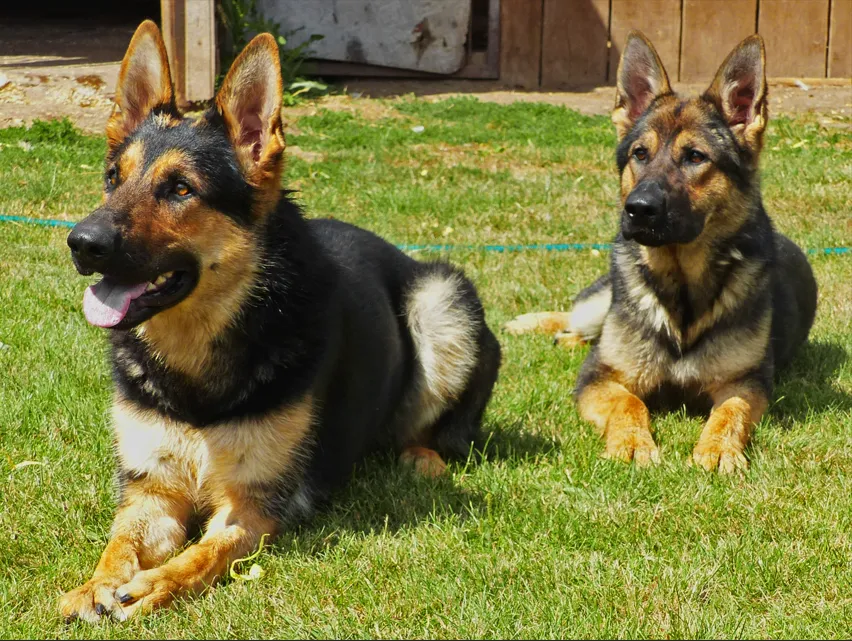
RELATED
Their coats are generally darker, with rich black and tan colors being predominant, and they have a straighter back compared to the American show lines, though not as angulated as the West Working Lines.
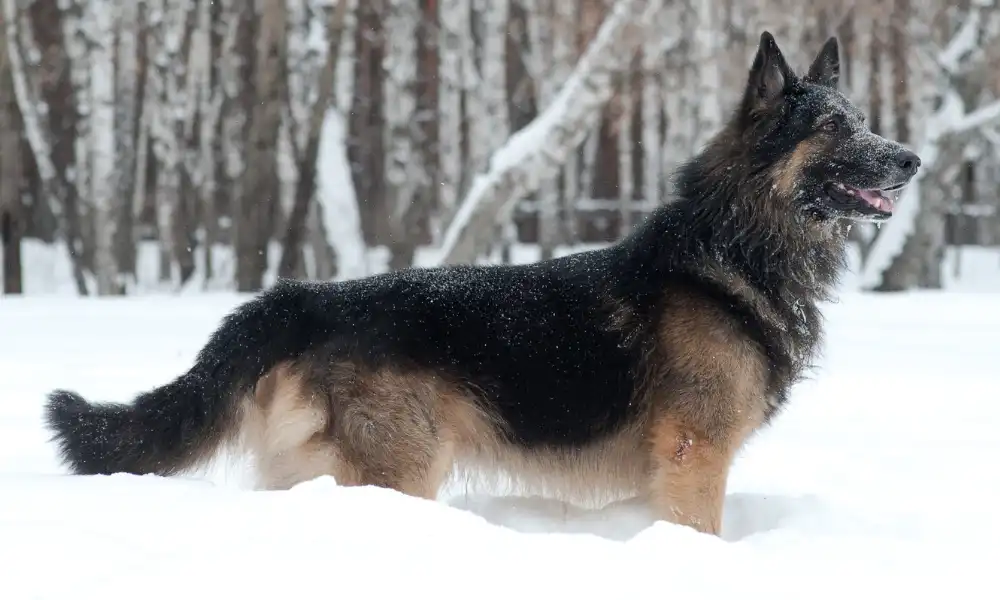
02. West Working Line German Shepherds
In contrast, West Working Line German Shepherds, which are bred predominantly in West Germany and other Western European countries, are known for their athleticism and agility. They tend to have a leaner and more streamlined build than their East European counterparts, making them exceptionally quick and agile, qualities desired in their roles as service dogs. They also exhibit the classic black and tan coat, but with variations that can include sable and all black.
The West Working Line German Shepherd dogs have a slightly angulated back, not as pronounced as the American Show Lines, but more so than the East European Working Lines, providing them with a balance of strength and agility. They are often recognized for their intense gaze and alert expression.
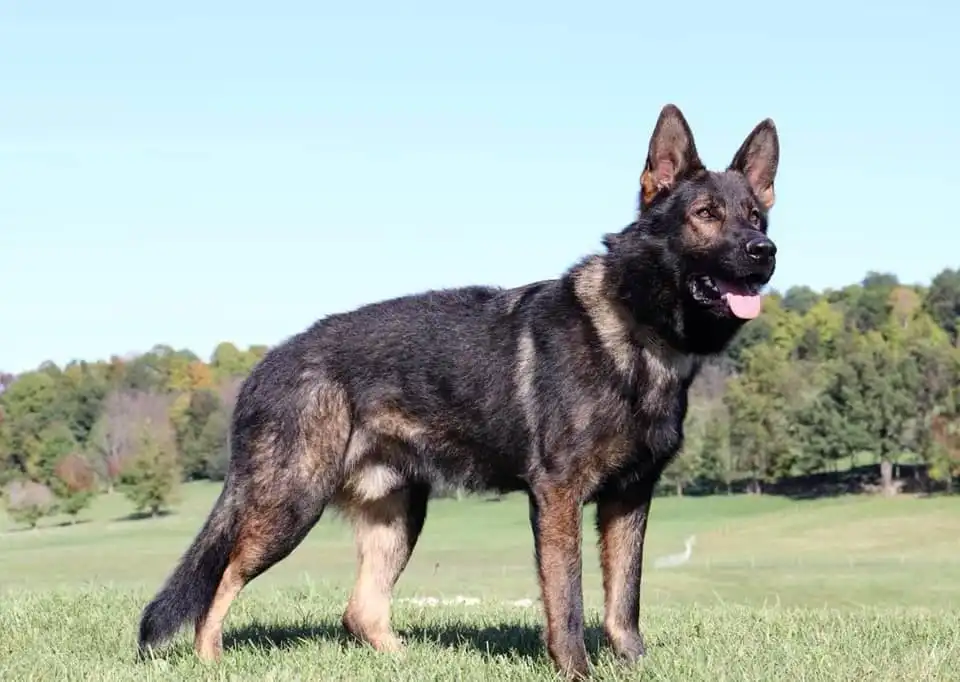
03. Czech Working Line German Shepherds
The Czech Working Line German Shepherds, originally bred in Czechoslovakia from primarily East German lines, are most notable for their deep pigmentation and often solid black or dark sable coats.
Physically, Czech Working Line German Shepherds are very similar to the East European Working Lines, showcasing a solid, muscular build, but they are distinguished by a more moderate back angulation, striking a balance between the East and West working lines. In other words, Czech Working Line German Shepherds fall in between the East European Working Lines & West Working Line German Shepherd in terms of body structure.
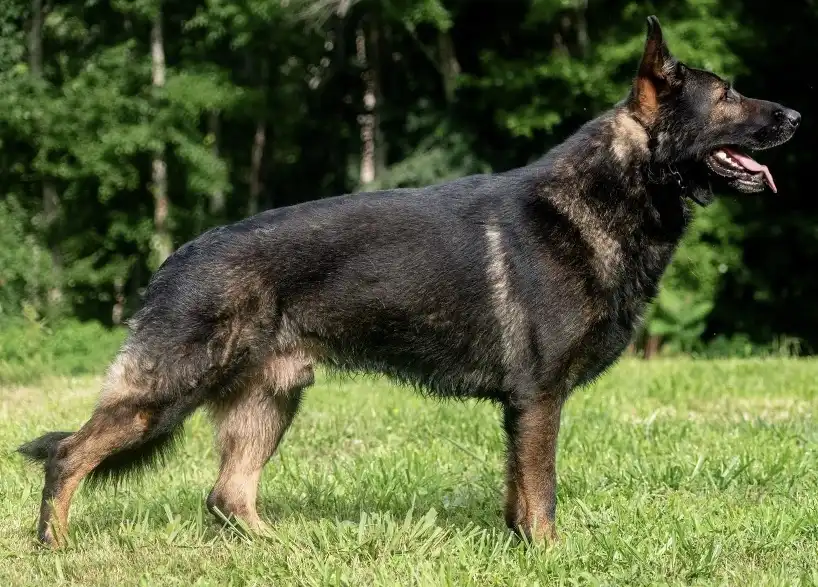
The Czech Working Line German Shepherds were bred for border patrol work, and as such, they possess an impressive physical resilience and a strong work ethic.
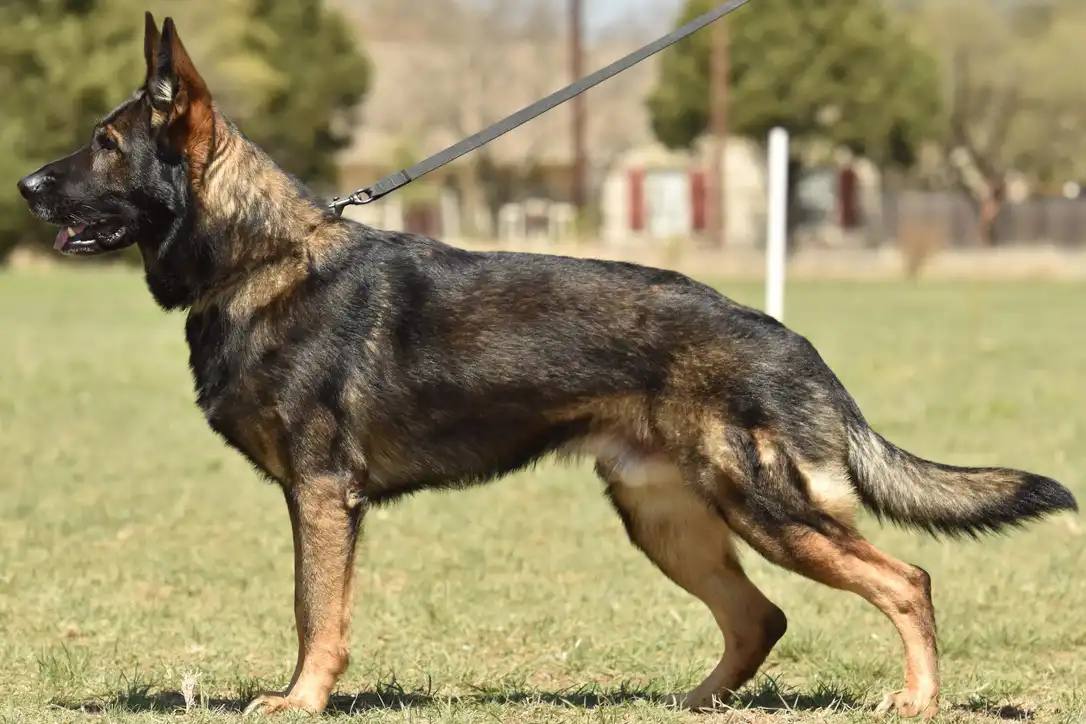
Final Thoughts
In summary, while three straight backs German Shepherd types share the same foundational breed, the East European, West Working, and Czech Working Line German Shepherds each display unique physical traits developed for specific working conditions and roles. From the robust and darker East Europeans to the agile and slightly more angulated West Working Lines, and the resilient, deep-colored Czech Working Lines, each brings its own set of characteristics optimized for performance and functionality in their respective duties.
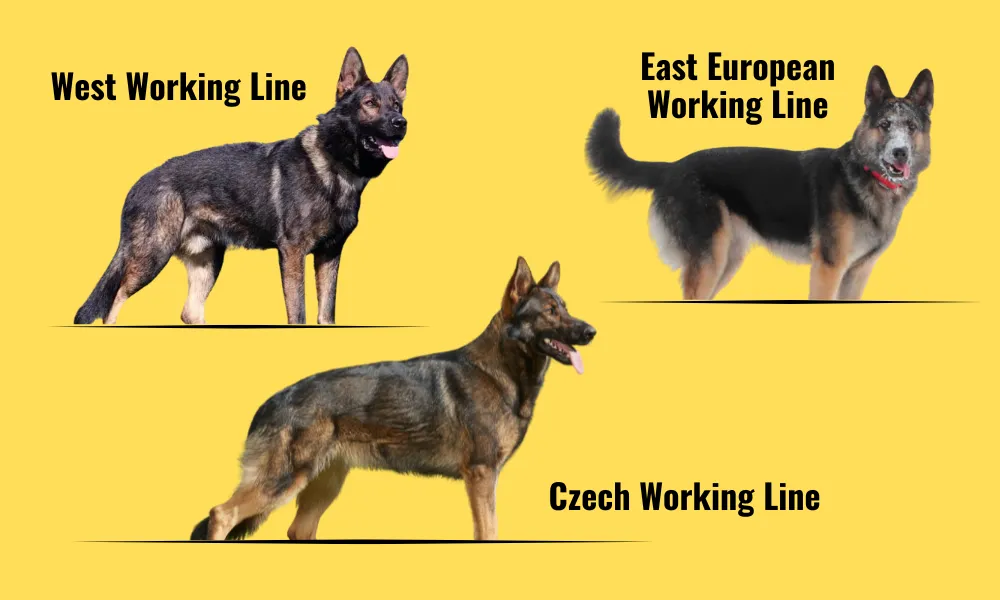
Also Read
- How To Know What Type Of German Shepherd Do You Have?
- Is White German Shepherd a Good Family Dog?
- Are White German Shepherds Purebred?
- How to Identify the Purity of German Shepherd Puppy | 5 Ways
- 15+ Top German Shepherd Breeders in Kentucky State
- Is There a Mini German Shepherd Breed Exist?
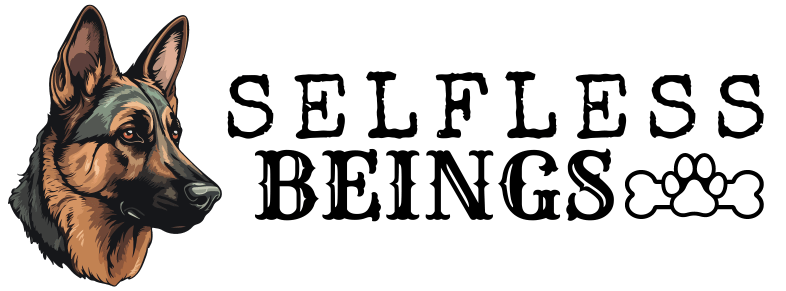
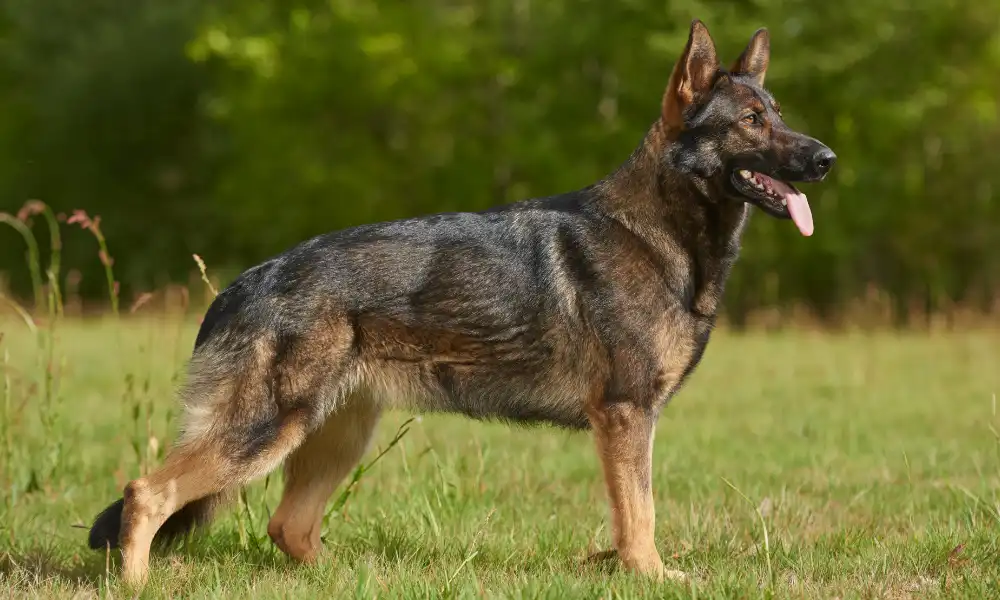


Leave a Reply